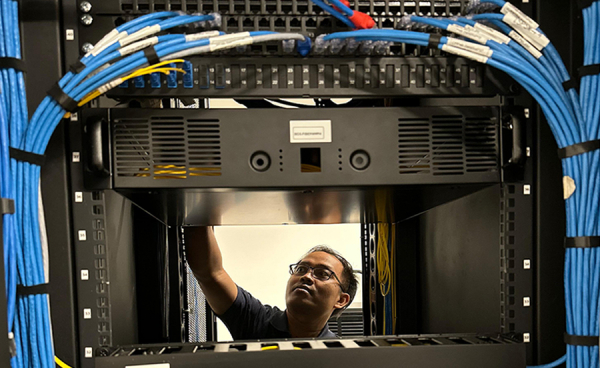Decoding Cloud Data Center Decisions: Why Some Enterprises are Choosing to Return 'Home’

Decoding Cloud Data Center Decisions - These days when it comes to digital transformation, two terms are always mentioned in this discussion: data centers and cloud computing.
In the fast-evolving digital frontier, enterprises' journey has seen a leap from traditional data centers to cloud ecosystems, chasing efficiency and scale. Thus, the idea of colocating in a public cloud sounds very promising to save cost and time.
Cloud computing provides something in which physical infrastructure limitations are rendered irrelevant these days. It offered enterprises:
- Flexibility: The ability to freely scale up for additional data is in high demand.
- Cost Efficiency: Documents can easily be uploaded online and accessed at a low cost.
- Global Reach: Seamless operations across geographical boundaries.
With these advantages, the departure from traditional data centers to the cloud data center seemed almost inevitable. And this is what the world experienced the most during the pandemic when the demand for digital infrastructure rose.
However, recent trends show a surprising shift: some are returning to on-premises data centers. The idea of sticking to the public cloud is no longer as great as it sounds, and the return to 'home' is not only a nostalgic one but an efficient strategy based on a range of factors.
Decoding the Return 'Home'
The decision of some enterprises to revert to their on-premises data centers is not borne out of nostalgia but pragmatic considerations. Usually, after working in the public cloud for a long time, the idea of coming back to the private cloud or colocation becomes a lot more interesting because:
- More Control: A private cloud and/or colocation offers dedicated resources, greater control over the environment, and customization options that might not be available in a public cloud setting. This is particularly beneficial for businesses with specific infrastructure needs or those dealing with sensitive data.
- Cost Savings: Building and maintaining one's own data center is expensive. With colocation, businesses can leverage third-party data center facilities and resources, which are shared among many customers, thus spreading out the costs.
- Security and Compliance: Many colocation providers offer advanced security features, including physical security like guards, CCTV, and biometric access, as well as network security solutions. This can help businesses meet specific regulatory compliance requirements.
The High Attraction of Hybrid Cloud
It's crucial to highlight that this trend doesn't signify the cloud's diminishing relevance. Instead, it indicates an evolving enterprise strategy:
- Unparalleled Flexibility and Scalability: Modern businesses demand agility, especially with the growth of cloud data centers. Hybrid cloud environments meet this demand by allowing a dynamic shift of workloads between colocation, private and public clouds, weighing performance, cost, and security.
- Upholding Security and Compliance: Hybrid clouds ensure sensitive data remains safeguarded in data centers or within a private domain, all the while leveraging public cloud benefits.
- Cost Optimization: By leveraging the strengths of both public and private clouds, businesses can optimize their financial outlays. While the public cloud offers vast resources and the advantage of a pay-as-you-go model, which is particularly beneficial for sporadic or high-demand tasks, the private cloud can be cost-effective for stable, predictable workloads. Instead of viewing them as distinct entities, the hybrid approach draws the best of both worlds, maximizing value for organizations.
The complicated structure of the hybrid cloud might be difficult, but the benefits are compelling. Businesses must make informed judgments in the fast-changing digital landscape. For many, the hybrid cloud, with its complex mix of colocation, private cloud, and public cloud resources, serves as a beacon, lighting the path to effective digital transformation.
Bersama Digital Data Centres, based in Jakarta, Indonesia, offers more than just colocation. We also provide seamless connectivity to a range of digital enablers including network, baremetal, and cloud providers, making hybrid cloud setup exceptionally supported. Our commitment is to ensure our partners and customers receive world-class services, resulting in superior infrastructure and network performance, lower latency, and cost efficiency.
